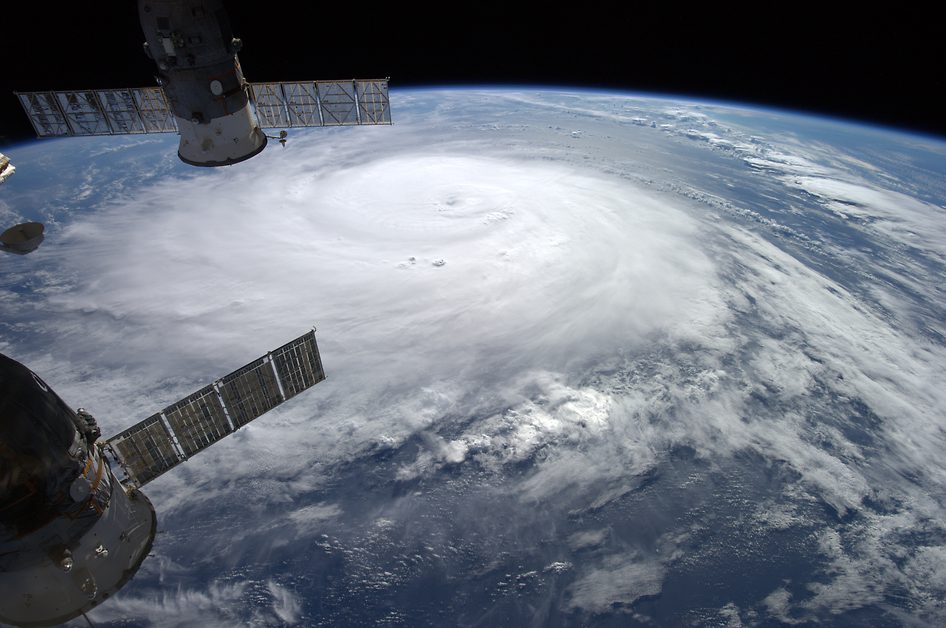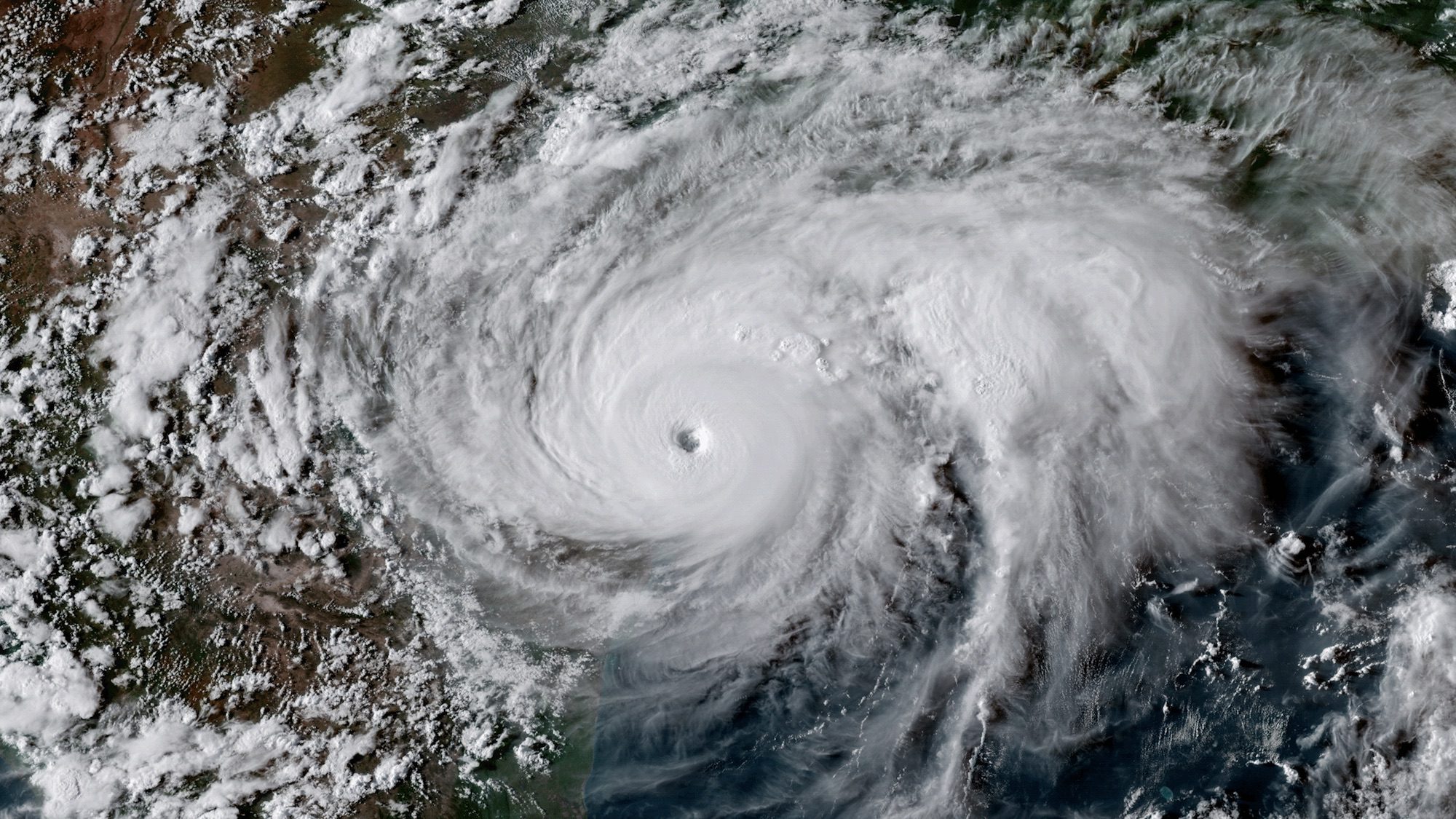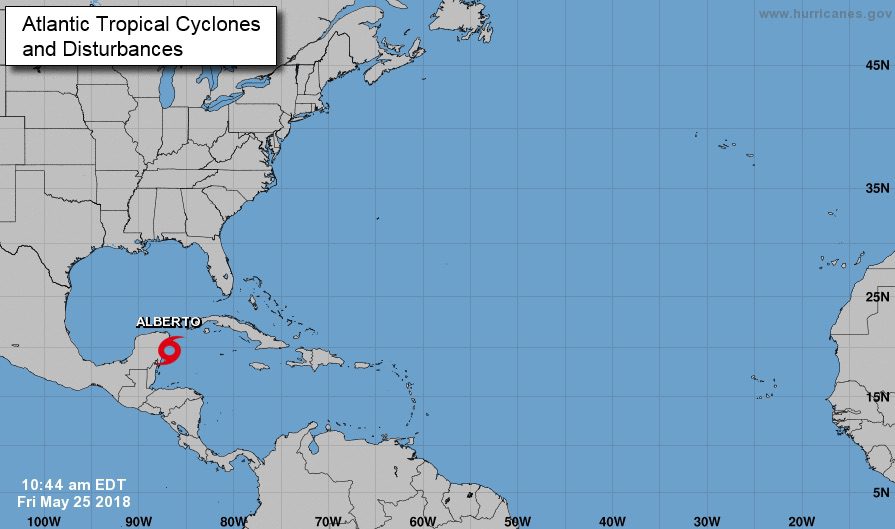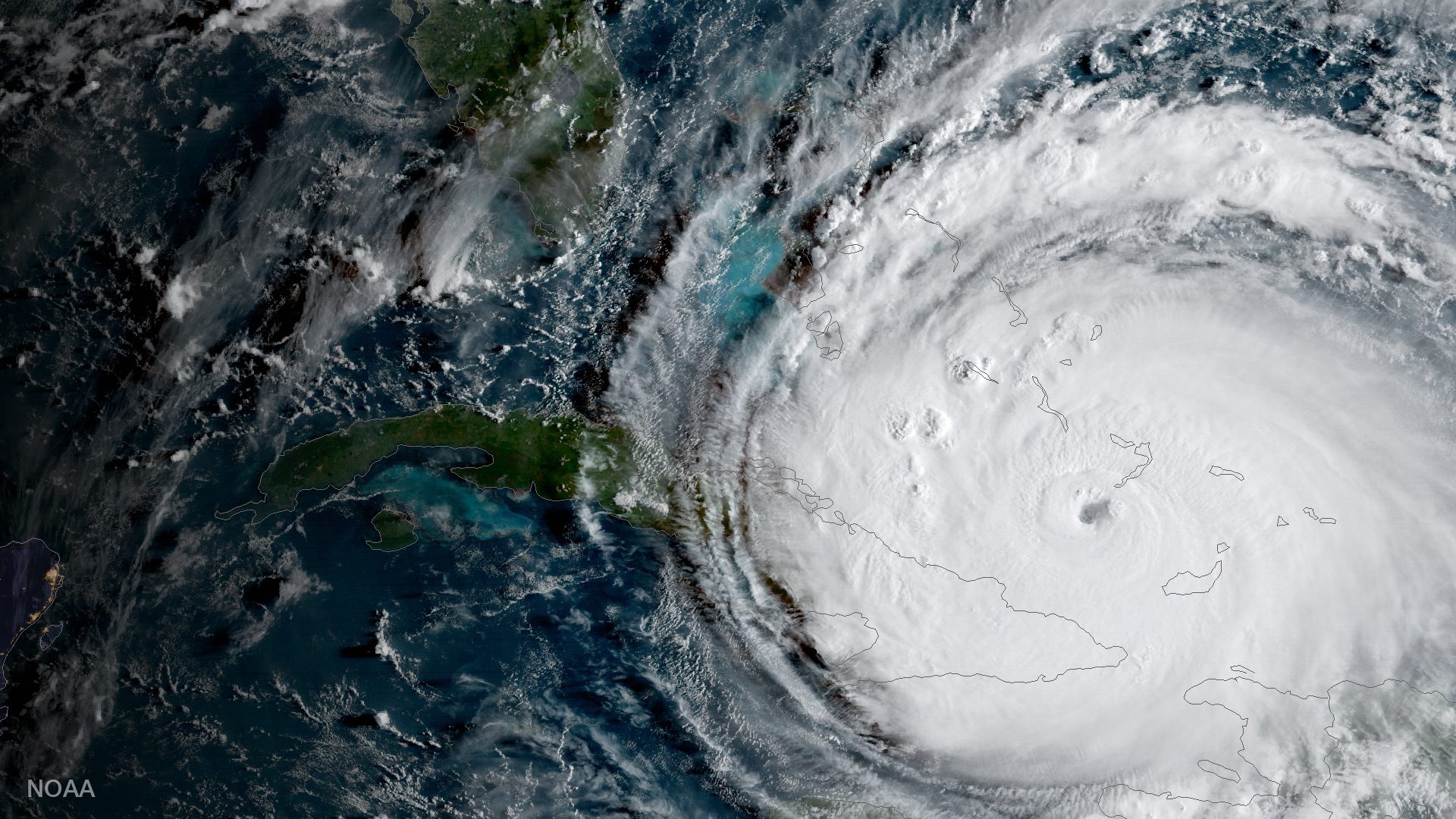Hurricane Gonzalo as seen from the International Space Station, October 16, 2014. Photo credit: NASA
 By Sam Strangeways
By Sam Strangeways
HAMILTON, Bermuda, Oct 17 (Reuters) – Hurricane Gonzalo scored a direct hit on Bermuda on Friday evening, knocking out most of the electricity there as it lashed the tiny Atlantic island chain with pounding surf, drenching rains and sustained winds topping 100 miles (161 km) per hour.
The strongest storm to sweep the subtropical British territory in a decade made full landfall at about 8:30 p.m. local time as the large eye of Gonzalo, 35 miles (56 km) wide, crossed the south-central coast of Bermuda, the U.S. National Hurricane Center in Miami reported.
The Category 2 hurricane was packing sustained winds of up to 110 miles per hour (175 kph), down from 140 miles per hour (225 kph) earlier in the day, but remained a dangerous storm, the forecasters said. Hurricane force winds extended up to 60 miles (95 km) from its center.
The low-lying archipelago has a total area of only 21 square miles (54 sq km), and the hurricane center warned that once the eye had passed, the islands would still be battered with damaging winds and a life-threatening storm surge.
Flooding was reported in some areas and many banana trees had been knocked over. The islands’ only power company, Bermuda Electric Light Co. (BELCO), reported nearly 31,000 customers were without electricity, out of 36,000 metered connections.
“Right now, where I am, we are hearing rain lashing at the walls and windows, which are starting to leak, and intense gusts of wind pounding the building, making the glass pulsate,” said Susan McGrath-Smith, spokeswoman for BELCO, who was riding out the storm at the company’s headquarters with her two dogs, Marley and Abby.
“We have also heard transformers explode outside,” she added.
Gonzalo peaked on Thursday as a Category 4 hurricane with 145 mph winds (230 kph), and is expected to continue weakening throughout Friday and into the weekend.
Bermuda, a tourist destination and affluent insurance industry hub about 640 miles (1,030 km) off the coast of North Carolina, was still recovering from Tropical Storm Fay, which swept over the islands early on Sunday with near hurricane-force winds of 70 mph (110 kph), and later turned into a hurricane.
The governor of Bermuda, George Ferguson, advised the territory’s 65,000 residents on Friday to stay off the roads and listen to emergency bulletins.
“I wish everyone all the best, for the next 24 hours. Good luck, and look after each other,” he said in an emergency broadcast.
A British Royal Navy warship, HMS Argyll, was heading for Bermuda to help with post-Gonzalo relief efforts, the government said.
Linda Cook, 40, from Warwick parish, described watching Fay blow the roofs off three houses on Sunday and said she did not know what to expect from Gonzalo. “It’s my first hurricane and I’m terrified,” she said.
“We have trees down from the first storm. We’ve been trying to get rid of those and trying to get wood to board up,” she said.
Gonzalo was the Atlantic’s first Category 4 hurricane since 2011.
Hurricanes are categorized from 1 to 5 by sustained wind speeds according to the Saffir-Simpson Scale. For example, Category 1 storms have sustained winds between 74 and 95 miles per hour (119 to 153 kph). At the opposite end of the scale Category 5 storms have sustained winds of 157 miles per hour (253 kph) or higher.
“The good thing is that of all the places in the Atlantic hurricane alley, Bermuda is the best equipped to withstand a strike by a major hurricane. They have very strict building codes,” said Jeff Masters, a hurricane expert with private forecaster Weather Underground.
Hurricane Fabian, which pummeled the island in 2003 and caused $300 million in damage, was a Category 3 storm, he said.
The hurricane center said it expected “significant coastal flooding,” noting that Fabian produced an estimated 10 feet (3 meters) of storm surge when it moved over Bermuda.
The hurricane forced NASA to delay by at least three days its next cargo run to the International Space Station, which flies about 260 miles (418 km) above Earth because key tracking equipment is on Bermuda.
Gonzalo has already wrought destruction in the Caribbean, tearing off roofs in Antigua, killing an elderly sailor and damaging some three dozen vessels in St. Maarten. (Additional reporting by David Adams, Colleen Jenkins and Irene Klotz; Writing by David Adams; Editing by Dominic Evans, Mohammad Zargham, Jim Loney, Toni Reinhold and Ken Wills)
© 2014 Thomson Reuters. All rights reserved.
Editorial Standards · Corrections · About gCaptain
This article contains reporting from Reuters, published under license.

 Join The Club
Join The Club











